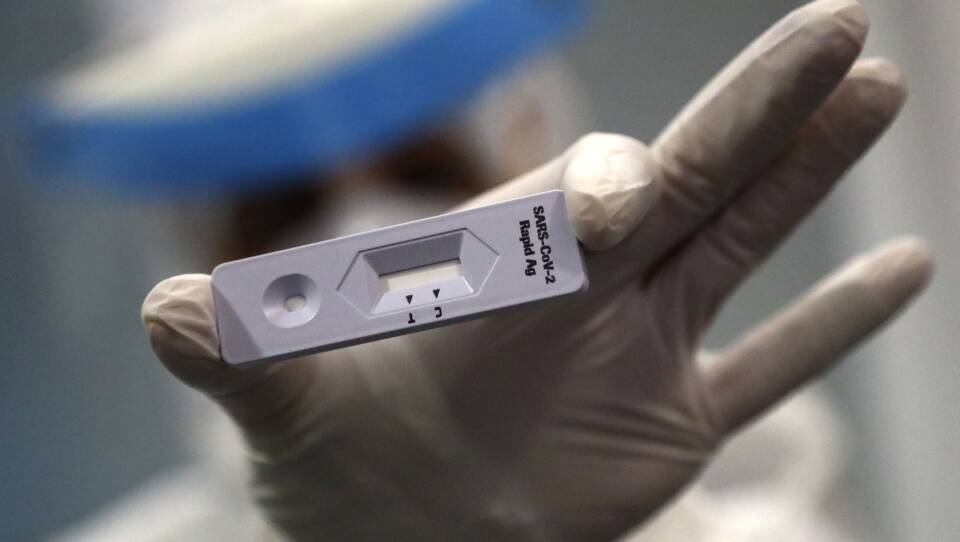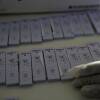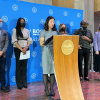As the Biden administration rolls out plans for private health insurance providers to begin reimbursing over-the-counter COVID-19 rapid tests, Dr. Michael Mina joined Boston Public Radio on Tuesday to share his thoughts on whether at-home COVID-19 tests could make testing more accessible. Even the newly announced program, he argues, creates too many barriers to rapid testing for the sake of public health.
“Unfortunately, we spent almost two years now really not having access to these tests in the United States, instead focusing almost exclusively for much of the pandemic on laboratory PCR, which has its place,” Mina said. “But when we’re really trying to create equitable access to testing and stop transmission in our community, fast, portable and accessible tests are really very necessary.”
Mina, an early advocate of at-home rapid tests, left his position with Harvard’s public health school in the pandemic to join e-Med, a company that provides at-home diagnostic testing. He argues that institutions like the Food and Drug Administration, Centers for Disease Control and Prevention and the White House are taking “a medicalized approach to a public health emergency.” By looking at COVID-19 rapid tests as medical devices rather than tools to mitigate transmission, Mina said, the agencies aren't pushing to use the tests as effectively as possible.
“There’s no medical reason to isolate an individual; it’s a public health practice, and the FDA has not been able to sort of wrap its head around the difference between a public health use of a test and a medical use, and that kind of just rolled downhill,” Mina said.
On Dec. 2, President Joe Biden announced that private health insurers would soon be required to reimburse at-home tests for patients. Furthermore, 50 million free tests would be provided to uninsured Americans living in rural communities through health care clinics and other community sites. Mina believes that this is the wrong approach.
“We shouldn’t be asking people to pay or go through this convoluted process, just put the tests out there for free,” Mina said. “The government can afford it. This is a $10 trillion virus at this point in the U.S. And the cost of these tests, even if the benefit was only a modest benefit, would far more than pay for itself — and the benefit would probably be much greater than modest.”
Dr. Michael Mina is the Chief Science Officer at e-Med, a company that provides a plethora of at-home diagnostic testing. He was previously an assistant professor of epidemiology at Harvard’s T. H. Chan School of Public Health.








